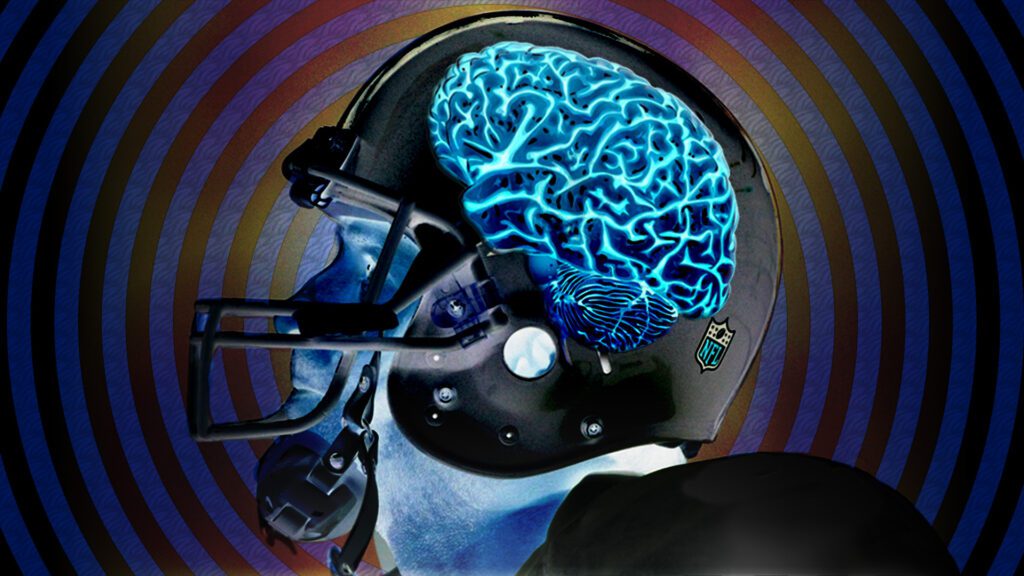The Concussion Crisis: Understanding the Dangers of Football

Football is one of the most iconic American sports to have ever been invented, with games being watched by millions each and every season. In fact, over 19 million people were tuning into Sunday Night Football in 2022. However, the sport has been shrouded in controversy for years due to the perceived health risks. Football players are making constant physical contact with one another through blocking and tackling, often at full running speed.
There have been countless injuries that have occurred on and off the football field over the years, but brain injuries have become the focal point of many experts’ arguments for why football is dangerous. Learn everything there is to know about the concussion crisis in football
What is a Concussion?
A concussion is a form of mildly traumatic brain injury that is primarily caused by a bump, blow, or major jolt to the head. It can also be caused by a hit to the body that causes a whiplash effect in which the head is jolted severely, such as being tackled heavily on the football field. From a scientific standpoint, a concussion results in the brain bouncing around or twisting in the skull in such a way that chemical changes can occur in the brain and cells can even be stretched or damaged.
Signs of a Concussion
Understanding whether or not you’ve experienced a concussion is important as it will indicate whether or not you need to seek medical attention as soon as possible. Some of the most common symptoms of a concussion following some type of impact to the head include:
- Feeling major headaches or a general “pressure” in the head
- Balance problems or general dizziness
- Confusion or sudden memory problems
- Nausea or vomiting
- Bright lights or noises bothering you
- A general feeling of sluggishness or grogginess
Even if you aren’t certain you’ve experienced a concussion, it’s best to get an official diagnosis from a medical professional to ensure you aren’t in any danger.
Concussion vs. Traumatic Brain Injury (TBI)
While a concussion is a mild form of a traumatic brain injury, there are a number of different types of traumatic brain injuries that aren’t necessarily concussions. For those who’ve experienced a traumatic brain injury, the difference between this and a concussion is that a major TBI occurs when a forceful bump or blow to the head occurs and an object pierces the skull and enters the brain.
Traumatic brain injuries are separated into two different categories: penetrating and non-penetrating. The above definition is a penetrating TBI whereas a serious concussion may be qualified as a non-penetrating TBI. Therefore, all concussions or TBI’s but not all TBI’s are concussions. Football players are more at risk to experience a non-penetrating traumatic brain injury, but there may be a penetrating traumatic brain injury in extreme circumstances.
Symptoms of a Severe TBI
As with a concussion, there a number of signs that a person has experienced a severe traumatic brain injury, including:
- Clear fluids draining from the nose or ears
- New neurological speech issues or motor control issues
- Convulsions or seizures
- Headaches or extreme migraines
- New frustration and irritability
- Difficulty remembering things or concentration
- Mood swings or high levels of agitation
- Constant or abrupt loss in consciousness
Long Term Mental Risks of Playing Football
The constant head jolting that results from playing football for years is what is so dangerous about the sport. Football players are at risk for a number of health issues related to their occupation, but the four most common health risks include:
- Chronic Traumatic Encephalopathy (CTE)
A CTE is a form of brain injury that develops over time and is caused by repeated head injuries, often smaller injuries occurring over a longer timeframe. Every time a new injury occurs, the symptoms of a CTE often worsen and include memory issues, impaired judgement, depression, aggression, and more.
- Severe Memory Loss
After being jolted around for years, many football players often find that they have severe memory loss later in life. In some cases, football players may lose certain motor skills after a number of years.
- Musculoskeletal Injuries
Football is an extremely physical sport that is demanding on a number of muscle groups in the human body. As a result, football players often develop musculoskeletal injuries resulting from overuse of these muscle groups during their careers.
- Increased Risk of Brain Disorders
Finally, the constant jolting of the head while playing football puts many former players at a greater risk for brain disorders such as Alzheimer’s or Parkinson’s disease. These problems have symptoms ranging from motor control issues to complete memory loss, making them quite serious.
Limiting Football Brain Injuries: Tips to Follow
As a coach or player, it is your job to keep your players or yourself safe on and off the field. That starts with learning techniques for limiting brain injuries in football as outlined by the Centers for Disease Control and Prevention. Some of the most notable tips to keep in mind include:
- Reduce the amount of physical contact players have with each other during practices
- Teach athletes the proper way to perform a tackle without putting the head in a vulnerable position
- Enforce the rules of the game and place an emphasis on sportsmanship and no cheap shots
- Always make sure the equipment players use fits them correctly and works
- Teach athletes what unsafe tackling conditions look like so that they choose to protect themselves over a risky play
Protect your head on and off the field
Staying safe as a football player is all about keeping your head well protected when playing the sport that you love. Just because you’re wearing a helmet doesn’t mean you can’t suffer a serious injury from a collision with another player. If you’ve been involved in an accident off the field where you suffered a traumatic brain injury, don’t hesitate to reach out to an accredited injury lawyer if the accident was caused by a person or organization’s negligence.
![]()

NFL Draft Diamonds was created to assist the underdogs playing the sport. We call them diamonds in the rough. My name is Damond Talbot, I have worked extremely hard to help hundreds of small school players over the past several years, and will continue my mission. We have several contributors on this site, and if they contribute their name and contact will be in the piece above. You can email me at nfldraftdiamonds@gmail.com
